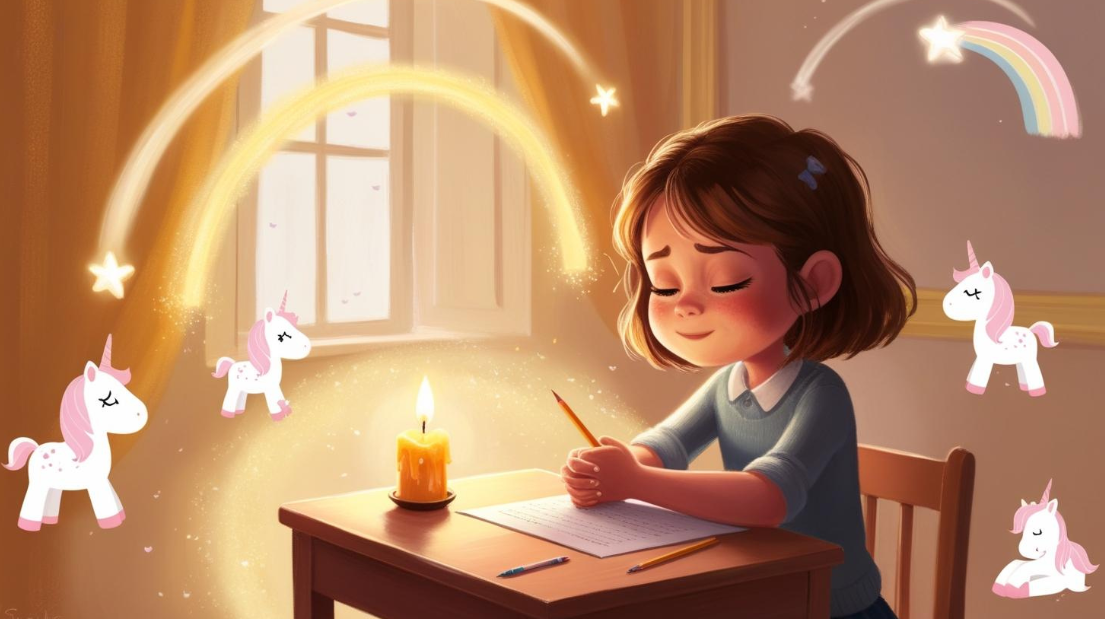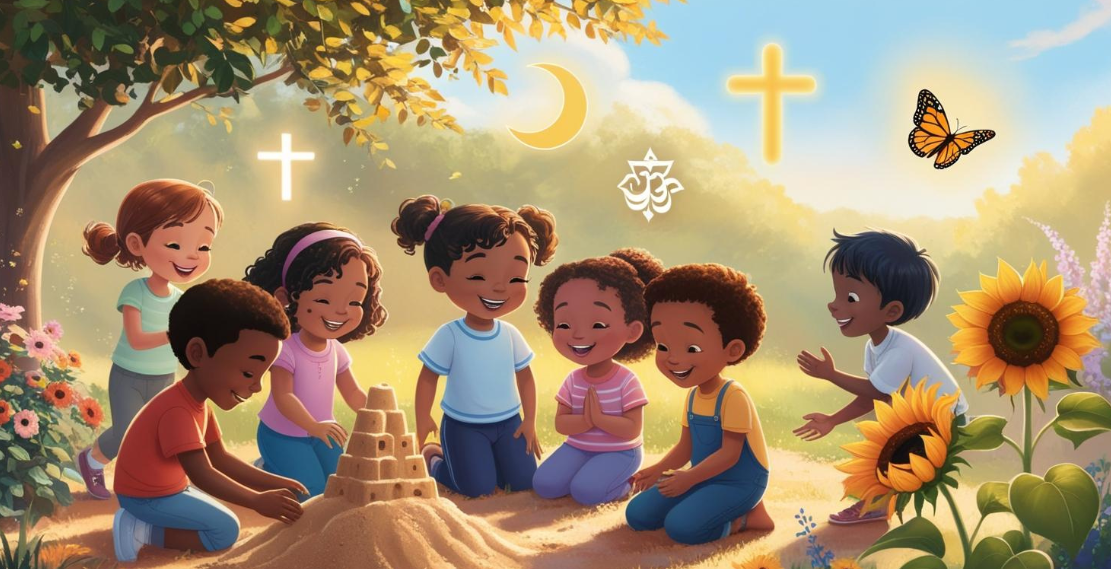Hey there! Have you ever wondered how religion shapes a child’s mind and heart? It’s a big topic, right? But don’t worry, I’m here to break it down like we’re chatting over a cup of chai. Let’s dive in and explore how religion affects child development—and trust me, it’s more fascinating than you think!
A Foundation of Belief and Values
Imagine you’re building a house. You need a strong foundation, right? Well, for many kids, religion becomes that foundation. It’s like a guidebook for life. Through stories, rituals, and teachings, children learn what’s right and wrong, what kindness looks like, and why sharing matters.
- Teaching Values: Religious stories, like those from the Bhagavad Gita, Bible, or Quran, teach kids honesty, compassion, and patience.
- Life Lessons: Simple tales often carry profound lessons that stick with children as they grow.
Building Social Skills
Now, let’s talk about the social part. Ever been to a religious gathering, like a temple, church, mosque, or gurdwara? These places are buzzing with people. For kids, it’s a golden chance to mingle, make friends, and learn how to interact with others.
- Community Bonds: Festivals like Diwali, Christmas, or Eid teach kids teamwork and respect for others.
- Diversity Awareness: Kids learn to respect and understand different cultures and beliefs.
For example, during a festival, children might help decorate, prepare food, or distribute gifts. It’s teamwork 101, wrapped in fun and laughter!
Emotional Comfort and Resilience

Life isn’t always rainbows and unicorns. Sometimes, kids face challenges—a bad grade, a fight with a friend, or just feeling down. This is where religion can act like a warm hug. Practices like prayer, meditation, or even lighting a candle can give kids a sense of calm and hope.
- Stress Relief: Religious practices help children manage anxiety and feel secure.
- Resilience Building: Encourages kids to face challenges with courage and positivity.
Take Riya, for instance. She’s a 10-year-old who feels nervous before exams. Her mom suggests she say a little prayer and take deep breaths. Riya says it helps her feel brave, like she has a superpower backing her up. Isn’t that amazing?
Boosting Brain Power
Here’s a fun fact: Religion can also sharpen a child’s brain! How, you ask? Well, understanding religious stories, symbols, and rituals involves thinking, questioning, and problem-solving.
- Critical Thinking: Stories about good versus evil encourage kids to ask, “Why did the hero win?” or “What would I do in that situation?”
- Cultural Awareness: Kids exposed to different religions become more adaptable and open-minded.
The Keyphrase: Religion Effect on Child Development
It’s clear that the religion effect on child development goes beyond just learning prayers. It shapes their emotional, social, and cognitive growth in unique ways. By introducing children to meaningful practices, you’re giving them tools to navigate life.
A Few Challenges Along the Way
Of course, every coin has two sides. While religion can be a positive force, it’s important to approach it thoughtfully. For example, if religion feels too strict or forced, kids might rebel or feel confused.
- Avoid Pressure: Let kids explore faith at their own pace.
- Encourage Questions: Answer their doubts and foster curiosity about beliefs.
That’s why balance is key. Instead of imposing beliefs, parents can encourage curiosity. Let kids ask questions, explore, and even challenge ideas. After all, it’s their journey of faith and understanding.
Real-Life Magic: The Story of Aarav
Let me share a quick story. Aarav is an 8-year-old boy who loves bedtime stories. His grandma often tells him tales from the Ramayana. One night, she shares the story of Hanuman’s courage. Aarav is so inspired that he starts practicing courage in small ways—like trying new foods or standing up for a friend.
- Impact of Stories: Aarav’s confidence grew thanks to the lessons he learned.
- Character Building: Religion gently molded Aarav into a kind-hearted child.
Wrapping It Up

So, what’s the verdict? The religion effect on child development is profound. It shapes values, boosts social skills, and even builds emotional resilience. But like any tool, it works best when used with care and balance.
- Positive Influence: Religion can fill a child’s life with love and wisdom.
- Balanced Approach: Make it a source of joy, not pressure.
As parents, caregivers, or just curious souls, our job is to make religion a positive experience for kids. Whether it’s through stories, festivals, or simple daily rituals, we can help kids grow into compassionate, thoughtful, and resilient individuals.
And hey, if you’re still wondering about the best way to introduce religion to kids, just remember: Keep it fun, keep it light, and let them discover the beauty of faith on their own terms. After all, the journey is as important as the destination. Don’t you agree?
Finally
It’s worth noting that religion isn’t just about faith—it’s also about a sense of belonging. Children who grow up in religious communities often feel connected to a larger purpose. They understand the importance of family traditions, respect for elders, and the joy of giving back to society.
Volunteering: Many religious teachings emphasize helping others. Whether it’s feeding the hungry, donating clothes, or simply being kind, these lessons shape children into responsible adults. Morality and Ethics: Religion helps children differentiate between right and wrong, guiding them toward ethical decision-making. Additionally, engaging in religious practices can enhance discipline. Whether it’s waking up early for prayers, observing fasting rituals, or following moral guidelines, children develop self-control and patience.
However, it’s crucial to allow space for exploration. Children might question religious beliefs or be curious about other faiths. Instead of shutting down their curiosity, encourage open discussions. This helps them form a well-rounded perspective on spirituality.
In the end, religion, when introduced positively, can be a source of joy, learning, and emotional support. So, what are your thoughts? Have you noticed religion playing a role in your child’s growth?
Learn more about What is cultural development in early childhood
